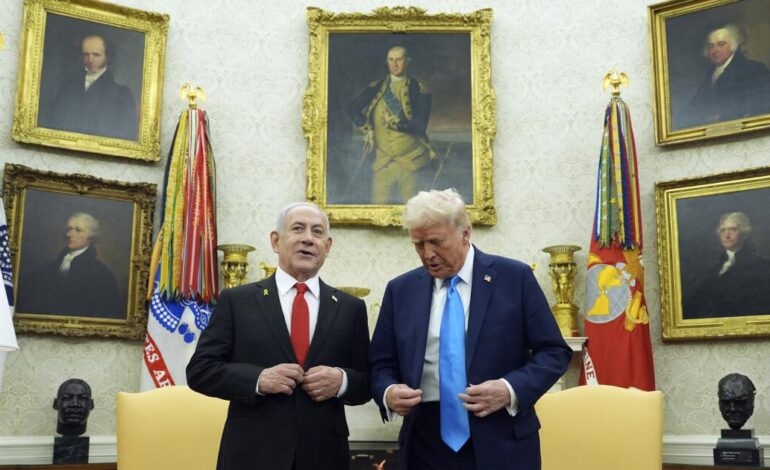Trump’s Middle East Peace Plan Sparks Global Skepticism and Hope

UPDATE: As President Donald Trump rolls out his ambitious 20-point peace plan for the Middle East, skepticism mounts both domestically and internationally. Concerns arise over the plan’s potential effectiveness, particularly in light of the ongoing humanitarian crisis in Gaza.
New reports confirm that the recent developments in the Middle East have elicited mixed reactions. Critics question whether Trump’s plan can genuinely foster peace, as many perceive it as favoring Israel while ignoring significant humanitarian concerns. As the world grapples with accusations of war crimes against Israel, the urgency for a sustainable solution has never been greater.
In a statement from June Maguire of Mission Viejo, she expressed doubt about the U.S.’s unwavering support for Israel, emphasizing the dire consequences for American interests and taxpayers. “How will Trump explain our obsessive devotion to Israel?” she questioned, reflecting widespread concern over the U.S. role in the ongoing conflict.
Meanwhile, concerns about the humanitarian toll in Gaza are exacerbated by the staggering number of casualties. Recent estimates suggest that nearly 64,000 Gazans have died since the escalation of hostilities. This reality raises critical questions about the moral implications of the peace plan and the responsibility of those involved.
On October 12, 2023, Trump celebrated a ceasefire that resulted in the return of 20 Israeli hostages but faced backlash for the high civilian toll. Critics like Richard Ellison from Pasadena noted that both Trump and President Joe Biden have contributed to the ongoing violence through military support, further complicating the peace efforts.
While some view the recent developments as a step towards stabilization, others remain wary. Steve Watson from San Clemente pointed out the need for accountability, asserting that “after nearly one year with Trump back in office, the devastation in Gaza cannot be overlooked.”
As questions linger about the future of the peace process, the role of Hamas in Gaza continues to pose challenges. Reports indicate that Hamas has taken approximately 250 hostages, with concerns about their treatment raising alarms among human rights advocates. The group’s refusal to acknowledge Israel complicates potential negotiations, leaving many doubtful about lasting peace.
The emotional weight of the situation is palpable, as families on both sides seek resolution and stability. As the world watches closely, the urgency for a comprehensive and equitable solution becomes increasingly clear.
The implications of Trump’s peace plan are profound, and all eyes are on the upcoming discussions. What happens next could redefine U.S. foreign policy in the region and impact lives for generations to come.
In a rapidly changing environment, one thing is certain: the world is waiting for answers, and the stakes have never been higher.






